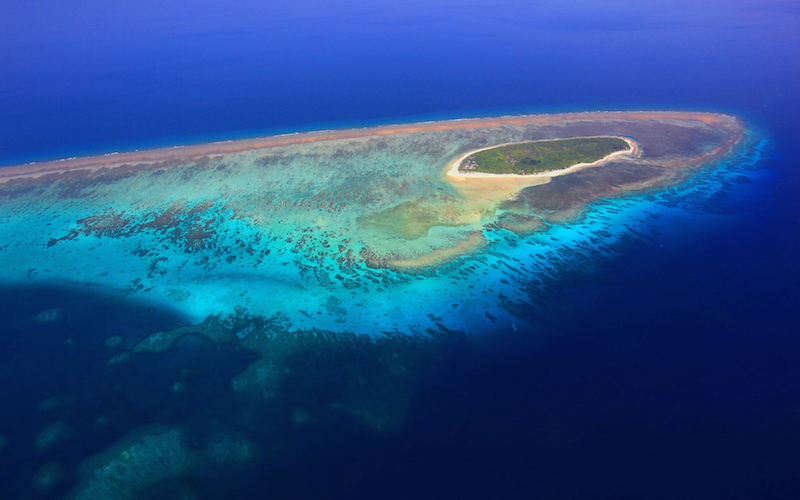
China and The Philippines’ Dual South China Sea Challenge
China is not happy about Tuesday’s ruling at The Hague, which stated that its de facto expropriation of islands throughout the South China Sea is illegal. The Annex VII Tribunal situated at the Permanent Court of Arbitration (PCA) at The Hague ruled that China’s 9-dash line is “incompatible” with the exclusive economic zones provided for in the United Nations Convention of the Law of the Sea (UNCLOS) and that there was “no legal basis for China to claim historic rights to resources within the sea areas falling within the ‘nine-dash line.’”
The ruling raises a host of questions – for China, for the Philippines (which brought the action against China to the PCA), and for the other nations bordering the South China Sea, which also have ongoing disputes with Beijing on the same subject. Beijing has dismissed the proceedings as a “political farce,” and “a trap set by the U.S. to maintain its dominance in the Asia-Pacific region.” From the beginning it has sought to legitimize its de facto expropriation of the islands based on purportedly centuries-old maps which only it views as the current (and sole) law of the sea.
Virtually all of the world’s other nations operate under UNCLOS, which came into effect in 1994 and defines nations’ rights and responsibilities with regard to the use of the world’s oceans, and for which 167 nations and the 27 nations of EU subscribe (including China, which was one of the first nations to sign the Convention in 1982 — on the very first day it became a legal instrument).
China predicates its ‘9-dash line’ claim over most of the South China Sea despite the fact that it enthusiastically signed into UNCLOS, which precisely prevents a state from invoking historical rights (save for areas which are ‘internal waters’). The South China Sea in its entirety clearly does not fit that definition. ‘Internal waters’ and ‘territorial waters’ do not extend beyond 12 nautical miles from a coastline for any coastal state.
Anticipating a loss, Beijing set a belligerent tone in its pre-ruling response, refusing to take part in the Tribunal’s proceedings, taking out ads in major newspapers telling its side of the story, and writing the entire process off as nothing more than a Western conspiracy against its rise as a global power. China had an opportunity to embrace the rule of law, participate in the proceedings and abide by the Tribunal’s ruling. Instead, Beijing has chosen to fight it every step of the way – outside of the very legal process it signed into and agreed to. In doing so, it has set the stage for what behavior may be expected vis-à-vis the South China Sea going forward (more of the same), and it has strongly delivered the following message: it will continue to selectively choose which parts of international law it will comply with, and which it will not. It has already blown the chance to put its best foot forward as a rising global power.
Will the arbitral award turn out to be little more than a paper judgment, given China’s intransigence and non-recognition of the case? This will remain the post-arbitration challenge for Beijing and all the other nations bordering the South China Sea in the years to come. Armed with a judgment in its favor, the Philippines, in particular, should work to exhaust all other international and regional legal avenues available to it in order to help ensure Chinese cooperation — and eventual compliance — with the norms, content, and tenor of that judgment. Even if neighboring claimants are not parties to the arbitration between the Philippines and China, all claimants will likely indirectly benefit from the ruling and will invoke it as Manila has against Beijing.
In the absence of military engagement to prevent it (which is highly unlikely – and Beijing knows it), there appears to be little doubt that China will continue with its now formally illegal land reclamation and artificial-island building activities in the South China Sea, despite the ruling and the “freedom of navigation” naval operations being led by the United States (U.S.). China’s approach is to attempt to convince other nations that ‘lawfare’ is neither a necessary nor sufficient condition to end disputes, and that no outcome of litigation can deter the practical effects of its “cabbage strategy” – that of surrounding contested islands with as many civilian and military ships as it can, so that each island is wrapped layer by layer like a cabbage.
Compliance with judgments of international tribunals may not be in name, but by behavior. In the 1986 case of Nicaragua vs. U.S., it took Nicaragua six years for its legal campaign against the U.S. to take effect. As with China today, the U.S. was found by an international court to have violated international law. The International Court of Justice then ruled that the U.S. had breached the obligation of non-interference by conducting paramilitary activities within Nicaragua’s borders. And as is the case with China today, the U.S. also refused to participate in the proceedings. Yet the ICJ found that U.S. refusal did not prevent the world court from deciding the case. More recently, in the 2013 case the Kingdom of Netherlands vs. Russian Federation before the International Tribunal for the Law of the Sea (ITLOS), Russia was even faster to comply with an international judgment. Russian authorities began releasing prisoners approximately two months after the filing of the case in 2013, and well before final judgment in 2015, in spite of Russia’s initial refusal to recognize the court’s jurisdiction.
In seeking to “enforce” the judgment, the Philippines should continue to seek for safe harbor under the UN system of grievance resolution. Since China is a permanent member of the UN Security Council (UNSC), any resolution attempting to enforce the ruling will be vetoed by the Council. Instead, the Philippines should immediately consider filing a resolution with the UN General Assembly (UNGA) calling for China’s full compliance with the ruling, as well as generally calling upon all states to observe international law.
In the Nicaraguan case, Managua’s resolution seeking enforcement had been vetoed six times by the UNSC, but the same resolution succeeded at the UNGA. An Assembly composition tilted towards advancing developing country interests and rising global public opinion against U.S. hegemony combined to raise the reputational cost of resisting the ICJ judgment to be greater than complying with it. When the U.S. felt that a “costs” threshold was reached in 1986 (i.e. when Washington felt it cost the U.S. more not to comply than to comply) it gave Nicaragua half a billion dollars in economic aid. It is expected that the Philippines will be able to achieve considerable world consensus (and therefore lead the charge in applying international pressure) in support of the ruling, and with it, eventual Chinese de facto compliance. As an element of soft power, consensus will be key to raising reputational costs for countries that choose not to comply with legal rulings widely perceived to be legitimate.
Aside from numerical superiority, the quality of international consensus will also matter. According to the AMTI Arbitration Tracker, at least 40 countries have already voiced support for the binding nature of the arbitral award or have called on China to respect it. Many of them score high in transparency perception and rule of law indices. On the other hand, while China claims to have garnered more than 60 countries in favor of its view, very few have issued explicit statements of support. The Washington-based Center for Strategic and International Studies could only confirm official statements from Afghanistan, Gambia, Kenya, Lesotho, Niger, Sudan, Togo and Vanuatu. Of these, six are in Africa, many of them are landlocked, distant from the disputes, and all are in some way beholden to China for military, development or financial aid.
The Philippines continues to benefit on this subject from the U.S.’s “ironclad commitment” to mutual defense, as well as from declarations of support for the arbitration outcome from the G7 and a number of other countries known for their respect for the rule of law. The Philippines is also expected to gain explicit support from the Association of South East Asian Nations, even though China has succeeded in the past in blocking the formation of consensus within the 10-member bloc. It remains to be seen how individual Asian countries will respond to the ruling – whether they will seize the opportunity to form a united front against China, or will refrain from doing so for fear of how the region’s economic and political goliath may in turn react.
How quickly the Philippines will be able to galvanize international consensus in favor of the ruling will ultimately determine the ruling’s near-term impact upon China. Even though Beijing has repeatedly said that it will not recognize the award, it has also worked very hard since the filing of the case in early 2013 to get the Philippine government to drop it. This is because China has always viewed the “illegitimate” arbitration proceeding at The Hague as one inimical to its interests, which affirms the real value of potentially adverse decisions of international tribunals, even as it disavows them if they are perceived to be against Chinese interests. That said, if the PCA or other legal body had ruled in China’s favor, Beijing would surely be praising ‘the process.’
While Beijing presumably does not want to be seen as an international outlaw, since that would undermine China’s narrative that it is a responsible rising power and that it deserves a greater role in the international order, its continued intransigence will make other countries wary of Chinese objectives, as well as the value of its stated and written ‘commitments,’ and will drive neighboring states even closer to Japan and the U.S. If prior history in international compliance is anything to go by, even given the Russian or U.S. examples, it will be in China’s interest to comply with the Tribunal’s ruling. In an international legal order that has no centralized system of enforcement, international pressure has always been, and will remain, the sole enforcement mechanism for international legal decisions. As unlikely as it appears, China still has the opportunity to step up to the plate and do the right thing. The Philippines has already done that. Building a formidable consensus in favor of the ruling is the Philippines’ next challenge.

